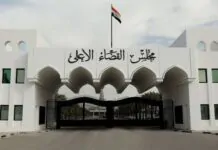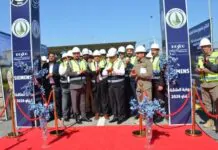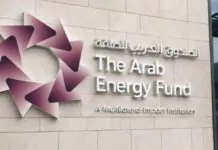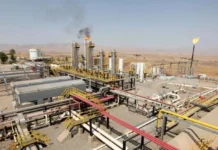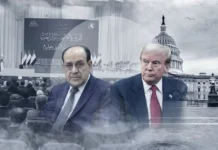Tishwash: The dinar rises and trade falls… a monetary paradox that confuses markets and curbs consumption.
Amid an atmosphere of cautious anxiety, Iraqi markets are gripped by a deep recession, with economic indicators intersecting with political variables, creating a stagnation-ridden business environment characterized by stagnation and low expectations. The sharp decline in purchasing power, the chronic volatility of the dinar’s exchange rate against the dollar, and the government’s shrinking spending are all symptoms of a complex problem that extends beyond the market to touch upon the very structure of Iraq’s rentier economy.
The manifestations of this stagnation are manifested in a state of “passive waiting” prevalent among consumers and traders. Despite its relative recovery, the dollar has become a source of suspicion rather than a catalyst for activity. The more the price declines, the more markets freeze, and citizens withdraw from the trading scene in hopes of further declines. This turns purchasing into a financial bet. An Iraqi economist summed it up by saying, “Demand in Iraq no longer follows need, but rather monetary sentiment.”
The statements of Rashid Al-Saadi, a representative of the Baghdad Chamber of Commerce, are an indication of the growing entanglement between economics and politics. He clearly pointed to the impact of the Central Bank’s decisions, the budget delays, and the reduced reliance on the parallel market. These observations reinforce the conviction that the issue goes beyond market fluctuations to the declining effectiveness of fiscal and monetary policy tools, given the absence of a proactive state role that can absorb shocks.
The repercussions extend to a darker landscape as experts speak of business losses, a shrinking real estate market, a decline in investment, and a weakening confidence in the effectiveness of monetary policy. These indicators reveal a flaw in the Iraqi economy’s equation, which is based on government spending that is only achieved through the approval of a budget, oil revenues that are slowly translated into projects, and a legislative structure that hinders market flexibility rather than protecting it.
It appears that the state, as the economic center of gravity, has become a bystander or a deferent, which has pushed the market toward a horizontal recession across various sectors, from real estate to automobiles, from tourism to trade, without the decline in inflation having any significant revival effect.
In contrast to this bleak landscape, some sectors, such as agriculture, the food industry, and e-commerce, appear less affected. However, they remain exceptions that do not alter the nature of the dilemma. The problem is structural, requiring urgent monetary and legislative reforms to restore investor confidence, curb market volatility, and recalibrate the relationship between the state and the private sector, moving away from improvisation and persecution rather than partnership. link
************
Tishwash: Oil is not another reason delaying the submission of budget tables to Parliament, and a warning against entering 2026 without them.
Economic expert Safwan Qusay revealed non-oil reasons behind the delay in submitting the budget schedules to parliament, warning of the repercussions of entering 2026 without actual approval, which could disrupt public spending and impact economic stability.
Qusay told Al Furat News: “The delay in sending it is not only related to fluctuating oil prices, but also to a government attempt to audit the numbers of employees, retirees, and those covered by welfare and the ration card, which may reveal exaggerations and inaccurate funding in some items over the past years.”
He added, “Financial and economic stability requires sustaining spending rates at levels similar to those recorded in the 2024 budget, which amounted to approximately 360 trillion dinars,” noting that “a decline in public spending could lead to an economic contraction, particularly in items related to new projects and job opportunities.”
Qusay explained that “the government continues to spend on salaries, pensions, welfare, and the food basket, as these are governed by laws. However, investment agreements and development projects require financial schedules to ensure sustainable funding and reduce unemployment rates.”
He pointed out that “budget tables represent an important reference for the private sector, which relies on them to plan imports and investments,” noting that “the absence of these tables will lead to economic confusion, requiring urgent intervention from Parliament to avoid entering the next year without a legal basis for spending.”
In a related context, Qusay noted that “oil prices during the first half of 2025 reached approximately $70 per barrel,” stressing that “the future outlook for the markets indicates the possibility of prices rising due to increased demand from China and the United States and improved understandings between the European Union and the United States, which could push the price to $73.”
Regarding production policy, the expert concluded by saying, “The Ministry of Oil is determined to increase production capacity to nearly 6.5 million barrels per day over the coming years, while Iraq’s OPEC quota is gradually increasing by 50,000 barrels per month in preparation for returning to the production capacity approved in November 2023.” link
************
Tishwash: Industry: The first locally manufactured portable thermal imaging system has been completed and security authorities have been notified.
The Ministry of Industry announced on Friday the completion of the first locally manufactured portable thermal imaging camera system, while noting that it had approached security and military agencies to discuss the use of this national system.
Ministry spokeswoman Duha al-Jubouri said in a press statement that “the ministry has completed the first portable thermal camera system, manufactured locally at the Al-Kindi factory affiliated with the General Company for Communications and Capacity in Nineveh Governorate.
” She added that “the new system is used for field surveillance and covers an area of up to 360 degrees, with a range of 6 to 30 kilometers, depending on the required specifications. It operates on solar energy and batteries to provide the necessary energy for long periods.”
She confirmed that “the ministry has approached security and military agencies, such as the Ministries of Defense and Interior, to benefit from this national system,” noting that “it will work to develop it later.” link


